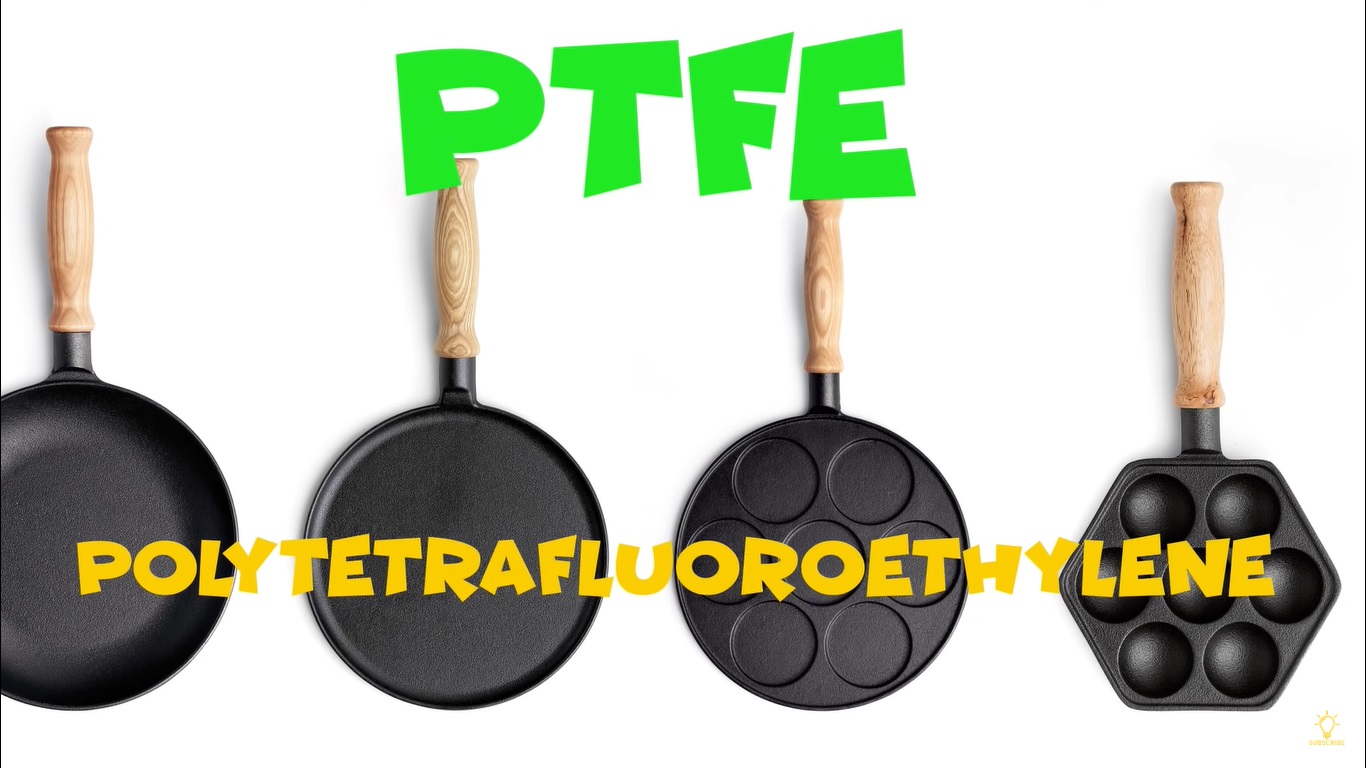Is Hydrolon Safe for Birds? Yes and No!
Most kitchen products are safe for birds, except for a knife. But does this ‘most’ include Hydrolon? Well, the simple answer is YES.
This non-stick cookware coating doesn’t emit PTFE or PFOA. Basically, it’s a water-based coating material. In contrast to this, some other non-stick cookware coatings can have adverse effects on your feathered friend.
However, the so-called ‘safe’ Hydrolon can be problematic as well. As you can see, the subject is a bit complicated, and the answer to your concern is not as simple as you may have thought. So, let’s get into the details and clear things up.
What actually is Hydrolon and Why is it Safe?
Hydrolon is a revolutionary non-stick coating. In recent years, it has become so popular that Hydrolon is synonymous with easy cooking experiences for many. It has all the remarkable attributes to make cooking effortless.
Most importantly, it reduces the oil requirement to an impressive level. Cleaning it up is a breeze as well. Another reason behind its popularity is its endurance at high temperatures and resistance to rough scratches. The impressive thing is that Hydrolon does all of this without having any mention-worthy adverse effects.
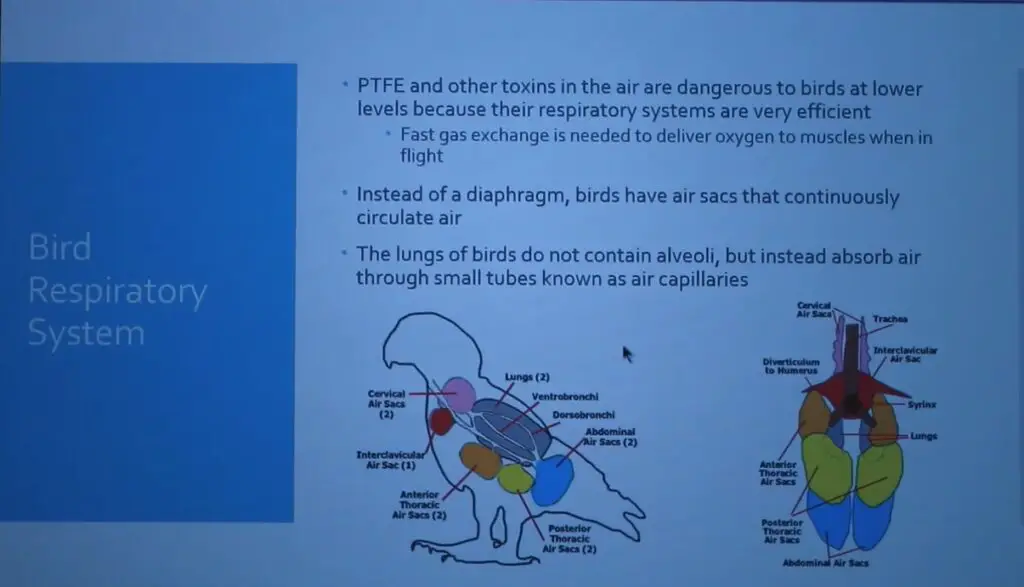
All of these amazing attributes come from its core component. Hydrolon is basically a water-based blend of fluoropolymer resin and proprietary components. This composition offers hallmark non-stick properties. This non-stick coating doesn’t emit harmful fumes like solvent-based alternatives, thanks to the water base.
Traditional solvent-based non-stick coatings are notorious for emitting polytetrafluoroethylene (PTFE) or perfluorooctanoic acid (PFOA) fumes when heated. Though these chemicals are commonly associated with non-stick cookware, they are nothing less than poison for birds. In fact, they pose a potentially adverse effect on avian health, and humans can also succumb to them.
The PTFE becomes most toxic when heated at a high temperature. This fume leads to respiratory distress in birds.
On the contrary to this horror, Hydrolon has certified safety. The manufacturers of Hydrolon-coated cookware emphasize the absence of PTFE and PFOA in their products.
The water-based composition here mitigates the risk of fume emissions that could easily be fatal to the delicate health of pet birds. If you are a bird owner and culinary enthusiast, Hydrolon is the safest option.
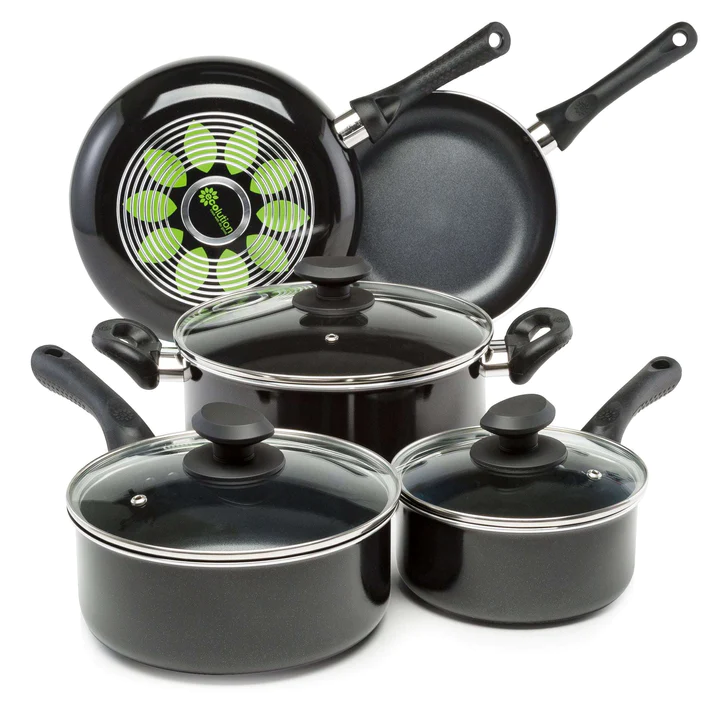
It CAN BE Safe But Consider the Following Safety Measures
There’s no arguing about the safety of Hydrolon-coated cookware. In fact, it’s safer than most alternatives. And this safety isn’t only about your pet bird but about you.
Still, despite all these impressive features, there are some things that you should look out for. There’s no cure for caution.
So, consider maintaining the following approaches to ensure an added layer of protection for your feathered buddy.
Designate a Separate Cooking and Bird Area
This can be easily done. Simply create a clear boundary between the cooking area and your birds’ living space. You can do this by positioning the bird’s cage away from the kitchen.
By maintaining a physical separation, you reduce your bird’s chance of exposure to any cooking fumes, no matter how minimal. After all, separating the fumes and the bird is your aim here.
Cooking in Well-Ventilated Spaces
No matter what you use as your cookware, do all your cooking in a well-ventilated space. Proper airflow helps disperse any cooking odors, vapors, and fumes.
This further minimizes the possibility of your bird inhaling any residual particles, no matter how harmless. Opening windows or using exhaust fans can significantly improve the air quality in your kitchen.
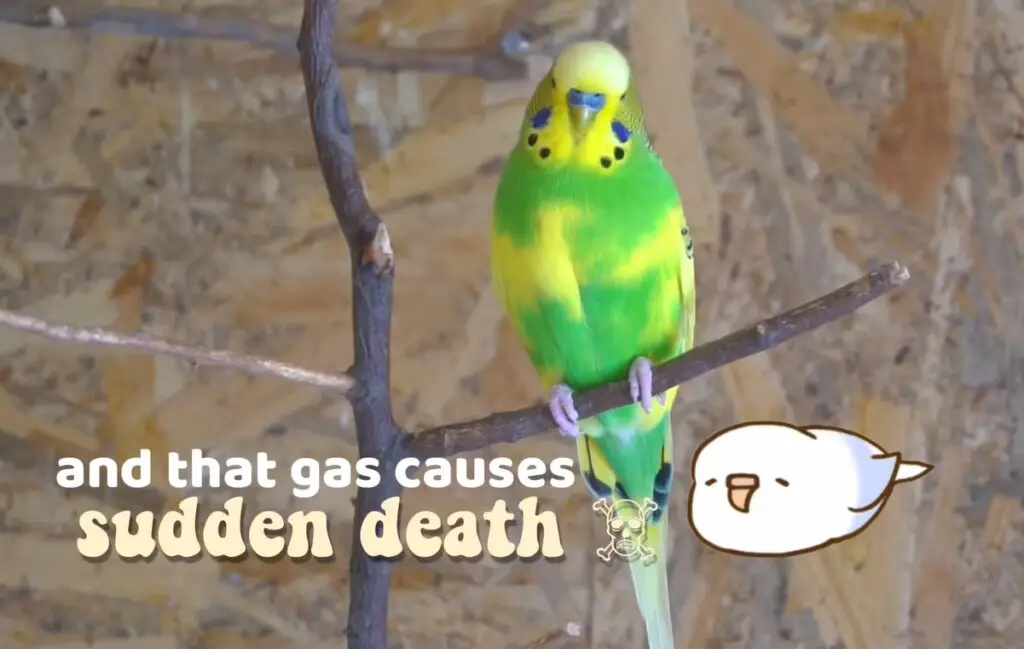
Strategically Utilize Cooking Time
If you live in a small apartment, it may not be possible to keep the fumes out of the house or to keep it distant from your bird. In this case, you can use your brain a little and devise a routine. Here’s what you are going to do-
Plan your cooking activities when your bird is least active. Birds are naturally more active during certain times of the day. By aligning your cooking routines with their calmer periods, you significantly reduce the chance of them being exposed to cooking-related fumes.
Don’t Overheat
It’s better for you, your cookware, and your bird if you don’t overuse or overheat your culinary tools. Excessive heat can cause non-stick coatings, even Hydrolon, to degrade and emit fumes. Though it requires a lot of heat to degrade Hydrolon, it’s still possible.
So, maintain moderate and appropriate cooking temperatures to ensure the safety of your cooking and the comfort of your birds.
Rely on Safe Cooking Alternatives
Hydrolon is definitely safe. But as you can see, it may not be the best option if your cooking involves high heat, excessive oil, or takes a long time.
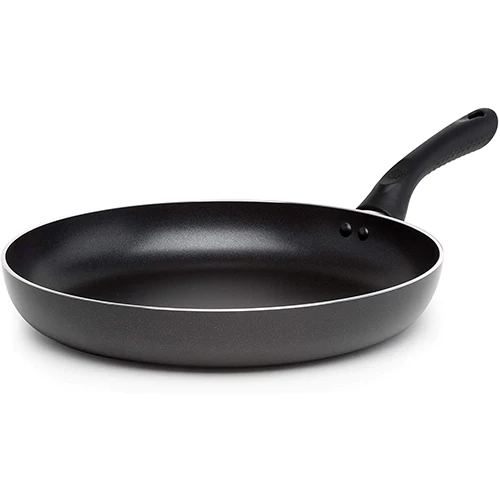
In such cases, opting for alternative cooking methods like roasting, steaming, or using stainless steel or ceramic is wise. Both stainless steel and ceramic pose no harm to birds or to you.
Although cleaning them up can be a bit of a hassle, it’s worth the effort because of all the benefits they bring to your household.
My Final Words on Hydrolon Safety
Scientific evidence suggests that Hydrolon is safe for pet birds. In fact, it’s the safest option available as long as you are looking for non-stick cookware. As you already know, the water-based composition is to be thanked here.
But, while the safety of Hydrolon is established, it still can keep you concerned about harmful fume emissions. This is why I recommend using alternative cooking utensils.
Don’t get me wrong, I am not saying non-stick is all bad. In fact, I, too, use Hydrolon coating, and I always have a few birds flying around inside my house. But if you are too worried or live in a tiny apartment, consider using something else… a ceramic pot, perhaps?
Related posts to bird safety-
Is propane heat safe for birds?
